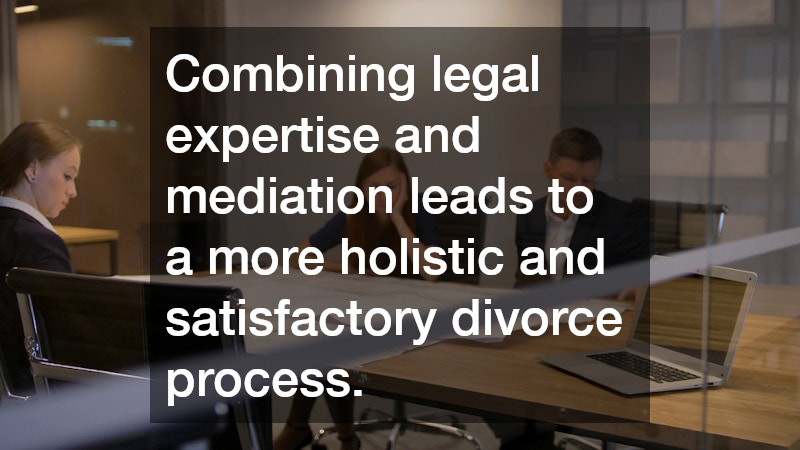
Divorce can be one of the most challenging life transitions, affecting not only the couple but also their entire family. Navigating this complex process requires understanding intricate legal frameworks within family law, which is where knowledge of mediation becomes invaluable. This tool can significantly influence the emotional, financial, and psychological outcomes of divorce, helping to steer a difficult and often overwhelming situation toward a more manageable and amicable resolution. Mediation encourages open communication, cooperation, and mutual respect, allowing both parties to actively participate in crafting solutions that meet their unique needs. By reducing conflict and fostering understanding, mediation often leads to smoother transitions and healthier relationships moving forward.
Understanding Legal Foundations in Divorce
Legal frameworks play a crucial role in establishing the grounds for marital dissolution. These include issues like asset division, child custody, and spousal support. Understanding these components empowers individuals to make informed decisions and protect their interests. Consulting with an experienced attorney provides clarity and direction, helping people move through the process more effectively. Legal professionals serve as both advocates and guides, ensuring that one’s rights are upheld throughout.
One critical component is the equitable distribution of marital assets. State laws vary in how property is assessed and divided, so a clear understanding of local statutes is essential. Legal guidance within family law is also key when developing custody arrangements, where the child’s best interests take priority. The complexity of these arrangements makes it vital to develop strategies tailored to each family’s unique situation. An experienced attorney can help shape custody agreements that work best for everyone involved and help reduce future conflicts.
Spousal support, another major area, often becomes a source of contention. Determining both the amount and duration requires legal expertise and negotiation. While guidelines may exist, outcomes depend on individual circumstances, making it important for people to stay engaged and well-informed throughout the process. A properly managed legal process can lead to fairer, more stable outcomes for both parties as they begin new chapters in their lives with greater confidence and security.
The Benefits of Mediation During Divorce
Mediation offers a less adversarial approach to resolving divorce-related issues. Unlike traditional litigation, it promotes cooperation and open communication between parties. A neutral third party facilitates discussions, helping couples reach mutually agreeable solutions. This approach fosters an environment where both parties can express their needs and concerns without the pressure of formal court settings. Mediation often leads to more satisfactory outcomes, healthier post-divorce relationships, and better co-parenting arrangements.
One significant benefit of mediation is its ability to reduce the time and cost associated with divorce proceedings. Traditional litigation can be time-consuming and expensive due to attorney fees and court costs. Mediation tends to be quicker and more cost-effective, allowing couples to allocate resources more efficiently. Moreover, mediation provides more control over the outcome, as both parties actively participate in shaping the agreements. This collaborative process often results in solutions that are more tailored and easier to uphold, reflecting the unique circumstances and priorities of each family.
Furthermore, mediation helps preserve emotional well-being during and after divorce. The process emphasizes communication and understanding, reducing hostility and fostering respect. This is particularly important when children are involved, as parents can model positive conflict resolution. The mediator ensures discussions remain focused on solutions rather than past grievances. Ultimately, mediation can pave the way for a more amicable and constructive divorce journey that supports healing and cooperative co-parenting.
Integrating Legal Guidance and Mediation for Optimal Results
Combining legal expertise and mediation leads to a more holistic and satisfactory divorce process. Legal frameworks provide the necessary structure, while mediation offers personalized communication channels. Together, they create a robust system addressing both legal requirements and emotional needs. Attorneys often collaborate with mediators to offer comprehensive strategies for clients. This integrative approach streamlines the process, making it less daunting for both parties.
The synergy between legal guidance and mediation protects rights while fostering cooperation. Open communication encouraged by mediation makes proceedings less contentious. Couples working collaboratively are more likely to find creative solutions, minimizing court involvement. Cooperation expedites the process and sets a positive tone for future interactions. Emphasizing mediation within the legal framework allows individuals to engage more openly and constructively.
Ultimately, this combined approach offers a balanced and thoughtful path through divorce. It highlights the importance of understanding family law and knowing one’s legal rights while promoting amicable communication and cooperation between parties. By leveraging both legal expertise and mediation skills, couples can navigate the divorce process with greater ease, efficiency, and confidence. This dual focus not only helps resolve immediate legal and emotional concerns but also lays a strong foundation for healthier and more constructive future relationships. The collaboration between legal counsel and mediation represents a comprehensive and effective way to achieve fair, lasting, and sustainable divorce outcomes that respect the needs of everyone involved.




